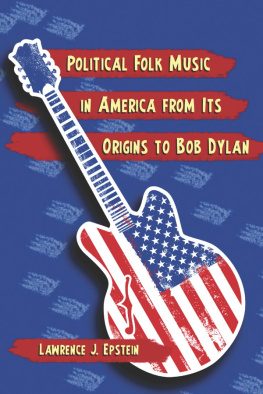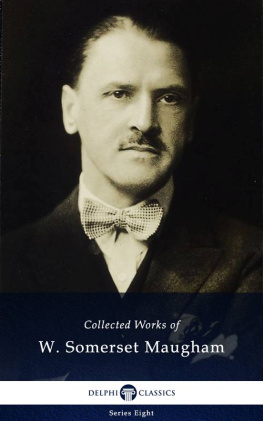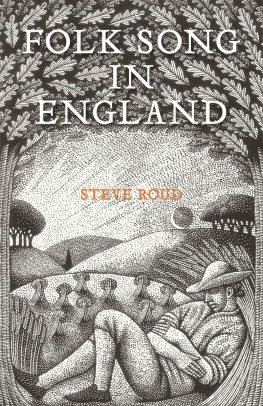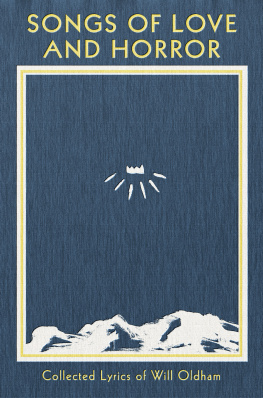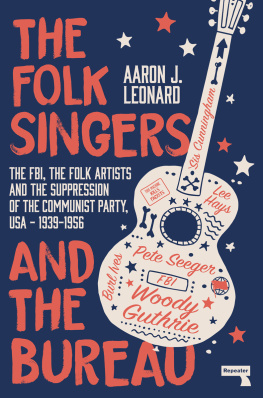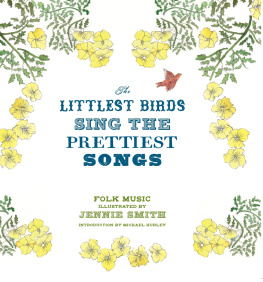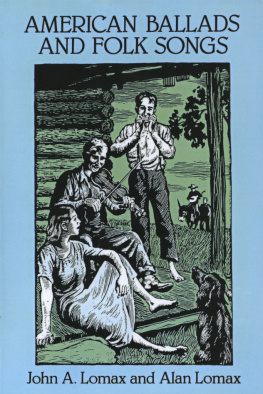ROUTLEDGE LIBRARY EDITIONS:
FOLK MUSIC
Volume 10
THE CHIME CHILD
THE CHIME CHILD
or Somerset Singers
Being an account of some of them and their
songs collected over sixty years
RUTH L. TONGUE
First published in 1967 by Routledge & Kegan Paul Ltd
This edition first published in 2016
by Routledge
2 Park Square, Milton Park, Abingdon, Oxon OX14 4RN
and by Routledge
711 Third Avenue, New York, NY 10017
Routledge is an imprint of the Taylor & Francis Group, an informa business
1967 Ruth L. Tongue
All rights reserved. No part of this book may be reprinted or reproduced or utilised in any form or by any electronic, mechanical, or other means, now known or hereafter invented, including photocopying and recording, or in any information storage or retrieval system, without permission in writing from the publishers.
Trademark notice: Product or corporate names may be trademarks or registered trademarks, and are used only for identification and explanation without intent to infringe.
British Library Cataloguing in Publication Data
A catalogue record for this book is available from the British Library
ISBN: 978-1-138-94398-8 (Set)
ISBN: 978-1-315-66734-8 (Set) (ebk)
ISBN: 978-1-138-95346-8 (Volume 10) (hbk)
ISBN: 978-1-138-12232-1 (Volume 10) (pbk)
ISBN: 978-1-315-66728-7 (Volume 10) (ebk)
Publishers Note
The publisher has gone to great lengths to ensure the quality of this reprint but points out that some imperfections in the original copies may be apparent.
Disclaimer
The publisher has made every effort to trace copyright holders and would welcome correspondence from those they have been unable to trace.
THE CHIME CHILD
or
Somerset Singers
Being an account of some of them
and their songs collected over
sixty years
by
RUTH L. TONGUE
LONDON
ROUTLEDGE & KEGAN PAUL
First published 1967
by Routledge & Kegan Paul Ltd
Broadway House, 6874 Carter Lane
London E.C.4
Printed in Great Britain
by W & J Mackay & Co Ltd
Chatham, Kent
Ruth L. Tongue 1967
No part of this book may be reproduced in any form without permission from the publisher, except for the quotation of brief passages in criticism
SBN 7100 2967 5
Owing to production delays this book was published in 1968
Dedicated to Richard Garland
the Sedgemoor Soldier
killed in France 1917
It was the Carol of the Beasts from Nailsbourne, sent in manuscript by Ruth Tongue as a Christmas card, that first introduced me to the tremendous store of folk material she had collected over many years. At that time she had hardly begun to prepare it for publication, but she allowed me to make trio arrangements of some of the songs for a small Cotswold choir. Enchanting, said one sophisticated listener, but surely not genuine folk song? Its too good to be true. Most collectors must have encountered similar remarks, because folk music and poetry do indeed range from the ridiculous to the sublime, and the best examples are of astonishingly high quality.
Ruth Tongue has been collecting almost since infancy. Being a Ministers daughter was no disadvantage: the people of West Somerset accepted her as a gifted child who would speak their language and share their secrets. She kept the treasures to herself for half a century, and only when it was clear that they were in danger of disappearing for ever did she decide to put them on permanent record. The manuscript of The Chime Child, with its vivid procession of West-country characters, came first to the Countryman office and we published two composite extracts from it in Autumn and Winter, 1965. Otherwise none of the material has appeared before, nor have any of the song tunes been in printed collections, except I took my Dame to Lambing Feast which is sung to the well-known air of Abram Brown or The Quakers Wife.
Most folk songs have more than one setting, just as many folk tunes are used for several different sets of words. Folk singers often vary time and tune as they go along, which helps to give folk music its remarkable variety. Asked to check the notation of The Chime Child songs, I did so only after listening long and carefully to a tape-recording made by Ruth Tongue and a Somerset friend of hers. As space did not permit the inclusion of all possible versions, we decided to use only those that have not been published before. Variations in tempo have been indicated as a rule by a pause mark rather than by inserting an extra beat in the bar, for these long-drawn-out notes are characteristic of most folk singers and are not integral to the tunes.
Here then are Old Shepherd, Gillavor of Taunton Barracks, Annies Granny, Richard Garland the Sedgemoor soldier, Cordelia Cooper the gipsy, Mr. Barry the ballad singer, wicked Isaiah Sully and the rest, to speak and sing for themselves as they did to the eagerly listening Chime Child long ago.
FAITH SHARP
The Countryman
Burford, Oxford
14th December 1966
I am not a musician, nor an expert, nor an academic student in the matter of these old songs. I sang them myself for my own enjoyment and therefore they comprise a cross-section of rescued melodies dating back to medieval days and up to the Victorian early ballads. Very few can be less than a hundred years old, many of my fellow singers reaching back to a youth spent in George IVs reign, and I do not think they have been collected before. To those who love old songs and their singers I hope they will give as much pleasure as I found in sixty years and more of listening to, and singing, their songs and sharing their company.
Among many country people there still lingers the age-old dislike of being mentioned by name. Ill sing for ee gladly but yew mustnt put my name to it. I have, therefore, out of respect for this feeling and those of friends and relatives, substituted other names for those of the singers described.
In this modern age of televised occult discussions for the millions on matters our forefathers wisely regarded as best not talked about, I have often been asked by fellow folklorists to explain a Chime Child.
I have, at last, felt free to do so. For years the ancient command of silence and secrecy held me back, although I had quite deliberately and prayerfully done what I could to remove that foot of mine so firmly planted in an unseen world. There are many men and women in this too-glib world of interviews and trivial chatter, who are still known to be Seers, Seventh Children of Seventh Children, the gifted, the charmer (not the fortune teller), who have been born to a strange heritage, and live out their lives with a foot in each of the worlds, seen and unseen. They are usually very silent about it, and only very few friends or their families know. Most of these traditional namings are to be found, through our modern passion for scientific classification, in various dictionaries but I doubt if you will find more than one reference to a Chime Child. The Chime Hours, yesthose potent ghostly hours from midnight to cock-crow that Shakespeare and his forbears knew were dangerous to living man because the Powers of Darkness claimed themthese you will find in many records of many beliefs. But a Chime Child was a purely local West Somerset faith, and within my own lifetime faded, with so much ancient lore that did not survive the First World War. So here is a description of what the very old in the 1900s declared Chime Children to be.



![Robert Choi - Korean Folk Songs: Stars in the Sky and Dreams in Our Hearts [14 Sing Along Songs with the Downloadable Audio included]](/uploads/posts/book/423508/thumbs/robert-choi-korean-folk-songs-stars-in-the-sky.jpg)


